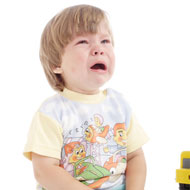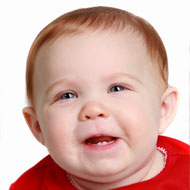- Toddler Measles Symptoms
- Toddler Flu Treatment
- Toddler Flu Symptoms
- Toddler Stomach Flu Symptoms
- Toddler Hair Loss
- Toddler Urinary Tract Infection Symptoms
- Toddler Tonsillectomy Recovery
- Toddler Periorbital Cellulitis
- Toddler Vomiting and Diarrhea
- Types of Toddler Vomiting
- Toddler Vomiting Treatment
- Toddler Cough Vomit
- Toddler Dandruff
- Toddler Bowlegs
- Toddler Eye Infection
- Toddler Pink Eye
- Toddler Pink Eye Symptoms
- Toddler Eye Problems
- Toddler Hearing Loss Signs
- Symptoms Of Pinworms In Toddlers
- Toddler Blood Infection
- Toddler Mononucleosis
- Toddler Motion Sickness
- Toddler Labial Adhesion
- Lyumphoma in Toddlers
- Toddler Scabies
- Toddler Pinworms
- Toddler Insect Bites
- Toddler Meningitis
- Toddler Moles
- Toddler Lyme Disease
- Toddler Nosebleeds
- Toddler Ingrown Toenail
- Toddler Lead Poisoning
- Toddler Hair Loss Alopecia Areata
- Toddler Heat Stroke
- Toddler Rubella
- Toddler Tonsillectomy
- Toddler Iron-Deficiency Anemia
- Toddler Tooth Discoloration
- Toddler Concussion
- Toddler Psoriasis
- Toddler Sunburn
- Toddler Tongue Blisters
- Toddler Impetigo
- Toddler Blepharitis
- Toddler Burns
- Toddler Burn Treatment
- Toddler Eczema Face
- Toddler Eczema Symptoms
- Toddler Urinary Tract Infection
- Toddler Boy Urinary Tract Infection
- Toddler Epilepsy
- Toddler Epilepsy Symptoms
- Toddler Walking Pneumonia
- Toddler Yeast Infection Symptoms
- Toddler Frostbite
- Toddler Hand Foot And Mouth Disease
- Toddler Dry Scalp
- Toddler Dry Skin
- Toddler Strep Throat
- Toddler Strep Throat Symptoms
- Toddler Sore Throat
- Toddler Mumps
- Toddler Bacterial Infection
- Shaken Baby Syndrome Symptoms
- Toddler Tonsillitis
- Toddler Eye Discharge
- Toddler Fifth Disease
- Toddler Febrile Seizures
- Toddler Food Poisoning
- Toddler Gingivostomatitis
- Toddler Stomach Ache
- Toddler Warts
- Toddler Tuberculosis
- Toddler Torticollis
- Toddler Tick Bites
- Toddler Ear Infection Remedies
- Toddler Ear Infection Symptoms
- Toddler Ear Infection Signs
- Toddler Concussion Signs
- Toddler Bronchitis
- Toddler Colds
- Toddler Chicken Pox
- Toddler Appendicitis
- Toddler Asthma
- Toddler Birthmarks
- Toddler Strabismus
- Toddler Wheezing
- Toddler Sprains
- Toddlers Tinea Versicolor
- Toddler Viral Infection
- Toddler Yeast Infection
- Toddler Hives
- Toddler Canker Sores
Effects Of Shaking Baby Syndrome
Shaken baby syndrome is also known as shaking baby syndrome and is a whiplash-like injury that is associated with small babies. The diagnosis of the condition actually hides a more sinister problem - that of child abuse at the hands of a care giver.
One of the most famous cases that brought this problem to the mainstream was the case of Matthew Eappen in 1997, who was an infant that was shaken violently by his caregiver and subsequently died of his injuries. This does not mean that babies are so fragile that they cannot tolerate shaking but any kind of shaking that is violent and brought on to inflict discipline or to make a child quiet will definitely cause the condition.
Whiplash is the closest form of injury to Shaken baby syndrome but the latter is more serious. One can recover from whiplash but in the case of shaken baby syndrome, one third of the victims will die and another third will suffer from serious neurological damage. There are three signs that warn doctors of this problem in babies: a subdural hematoma (bleeding in the brain), retinal detachment and bleeding, and in some cases the presence of bone fragments in different areas of the body. If all these signs are seen with no bruising, then shaken baby syndrome is suspected and the doctor is obligated by law to involve the authorities.
Conditions During Shaken Baby Syndrome
The problem is nearly always caused by frustrated caregivers that are trying to calm the baby down but are simply unable to. This frustration then leads to shaking the child. A baby skeletal and neural systems are simply too weak and underdeveloped to deal with any kind of major movement until the age of three.
In this time, even a regular fall can have disastrous consequences let alone a violent shaking. With the shaking usually comes a blood vessel rupture in the brain that is the cause for a subdural hematoma. Bleeding in the brain can cause death because of the pressure build up that occurs. Even if this does not occur, neurological damage can occur due to the immature nature of a child's brain with is more water-filled than an adult's.
How much is too much handling is a matter of conjecture so there should be no sudden movements made until the child is able to walk comfortably. Additionally, as a first-time parent, you should try and seek the advice of other parents to understand what it takes to get over parenting frustrations.


